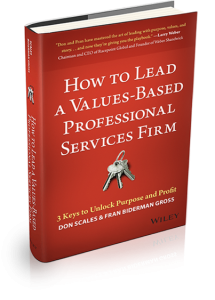
In this episode…
Sunny Kaila, CEO of IT by Design, is a Purpose Champion who proves that purpose and profit, far from being opposites, actually go hand in hand. In this engaging conversation Sunny shares:
- His immigrant journey
- How a values based culture starts with hiring
- How challenges like the pandemic are the proving ground of profit
Episode Transcript
Fran Biderman Gross
Hi, I’m Fran Biderman-Gross, CEO of advantages an award winning full service creative agency. And I’m here to discuss how the greatest leaders activate purpose. They uncover its roots, unlock its potential, and infuse it into everything they do to reimagine legacy, create winning cultures and achieve sustainable growth. listen in to learn insightful ways to overcome the real challenges countless leaders face every day.
Sunny Kaila is nothing short of an inspiration. He is a living, breathing example of the American dream. Sunny is one driven individual from his first arrival in America when he literally drove the streets of Manhattan to make ends meet and send money back home to India to his current role as founder and global CEO of IT by design, one of the world’s largest, fastest growing outsourced IT managed service providers. Sunny has never lost sight of his mission, his values and his purpose. And people that work for him to drive profit and impact. Despite leading a global company, Sunny somehow finds the time to give back through mentoring, public forums, and his charitable endeavors. And we are especially excited that he found time to join us today to share his story and insights with all of our purposeful listeners. Sunny, welcome to Drive Profit with Purpose. I want to start really at the very beginning with you because in my intro, I mentioned that when you first came to the States, you drove a taxi so you could support your family. And I just want to know, did you always know that you’re destined for something greater in a corporation like this
Sunny Kaila
Thank you for having me, Fran. I knew that one day, I will get somewhere because I was ambitious. And I was willing to work as hard as I had to get somewhere. But I did not know that I was going to be in the tech sector.
Fran
When you think back, and on a previous call, you told me that you wanted to be a doctor. So how do we get from there to here? Why was that and what changed?
Sunny
What was driving me from the beginning, was having that burning desire to serve people. In the beginning, it was okay, I will probably learn, you’ll be a doctor, I will be able to serve. And then when I moved here, so that was my dream in India, when I was growing up. And in my 11th and 12th, you had to pick medical or other tracks, and I picked medical to go to medical college. But then because of the limited seats there, I was not able to get in, and I was in the waiting list. When I moved here, driving a taxi, and paying double the resident fee was much harder in a medical college. That’s when I started exploring setting SMART goals for myself and my life journey. And I’m like, you know, what is attainable at this point driving taxi? Paying for my college, working and saving that money. What was attainable at that time was something related to a bachelors in computer science. That was January 1996, when I enrolled myself in a college. That was really the time, you know, being in technology or getting into technology, was the right timing.
Fran
I want to help everybody understand the true connection between being a human of service, whether you want to be a doctor, or you want to enter computer technology. So there really is a fair amount of similarities and differences. And I would love for you to highlight them a little bit. Because I think it’s really important that people understand the connection of their own purpose. And how they internalize things to whatever they choose to do. And sometimes a path doesn’t go according to your passionate plan.
Serving people is purpose.
Sunny
One thing that was always driving me was – how can I be more valuable to people? How can I be more useful? How can I be more helpful? How can I expand myself so that I can add more value to people around me? And that was really the driving force. What can I do in terms of learning some specialized knowledge, where you can build that capability to make a bigger impact on others’ lives. Keeping that in mind, I was looking for something where I can kind of grow as a professional in a specific domain, so that I am an expert of something. Technology was my choice at that time looking at things available to me. I was always good in math and science from the beginning. English being my second language, I had to start from ESL, and basically have a lot of English classes. With the math and science behind me and having that computer science and computer engineering as my field of choice. That’s how I made my choice. When I was building my business and developing my business, if you look at IT by Design’s purpose, the purpose is building our communities with a passion for excellence.
Fran
This is a really interesting part of the conversation. So when you look at a purposeful statement, there’s a cause, and there’s an impact. What I’m trying to understand is, which is the cause? Is it building the community? Or is it building the community for a center of excellence, because the center of excellence is a standard, but if you’re talking about serving people, what is the impact that this the excellence will have?
Sunny
There is a center of excellence type of concept, but here, what it really means is, it’s in the context of, if you’re going to serve them well, serve them with world-class quality. And it’s about building our structures and everything with world-class standards, to build that community. That’s what it means, building community is the purpose. But do it the right way.
Fran
Doing things the right way, so that there is a dependability, and there isn’t any ambiguity, because it’s authentically done in a way that can be trusted. I think about the importance of you being completely dedicated on a day-to-day basis to build community that is trusted. That is built on the foundation of a center for excellence so that anyone who comes into the community has a very high bar of trust. So you’re 100%, right, I need an IT provider that I can trust, who holds my information, the way they would hold their own. As a leader, how do you hold your center for excellence or what is the cost of entry of everything having to be of a certain level of excellence? How do you live that out loud to lead an organization that that really embodies that culture?
Sunny
When you’re leading by example, leading from your heart, your culture is all about honoring those commitments that we make to the community that we’re building. Then we hold each other accountable. And one thing that I’m so proud of here at IT by Design is that we have built a great group of people and they have been with us for 13 years, 10 years, and majority of the leaders are homegrown. They believe in our purpose, our vision, and our direction, and what we are doing at the humanity level and put people before profit and put heart before head. When it comes to it ITBD culture, these are the two things that I practice and preach in every single day. Make progress, because I’m not perfect. I made progress, I’m intentional about leading from my heart, before my head, and leading with people first and profit later.
Fran
So that goes to my next question, it’s an incredible accomplishment, or I would say acknowledgement, really, by your team, to participate and to be recognized as one of the 2020 great places to work. And what do you think really sets your company culture apart? And why does it shine amongst your team?
Building a culture of family
Sunny
Having a family type culture not only is for our website, but is really everything that we are doing at IT by Design? What do you do in a family, for example, when last March this whole COVID situation started? It was not about once a week, or once a month. It was every single day starting March 28 every single day. 7:30am coffee with the community. Coffee with my ITBD family, and especially with our global offices, and we have two offices in India, and one office in the Philippines. Stuff is different there. People had a hard time not only with food, but the overall situation. Being well connected there, I asked everyone that I want to know that there is something that is happening, where you are, if you don’t feel safe, you don’t feel protected, I am there for you. Every single day at 7:30am still today, we have continued with the half hour morning session. I can miss a lot of things, but I do not miss that meeting. And even during my vacation, if I don’t do anything else, I am focused every day and I just take that half an hour to be there for my team. That’s just one example. Then from yoga meditation sessions and mental wellness programs that we have started as two programs. And that is because health and safety of our family, ITBD family was so near and dear to my heart. And I’m going to invest in these world class professionals when they come in. They do group sessions and one on one if people were struggling. And I wanted them to be surrounded by experts where they can go to for their mental wellness related conversations.
Fran
There is no doubt it has been felt very strongly by your team, because it has shown up in so many ways. If you look at your growth over the last couple of years, can you talk about how that really has impacted not only your team, because when you grow exponentially, you’re adding an abundance of talent that isn’t necessarily from your culture or understands your culture, but yet you have been successfully able to grow exponentially because your team is so accountable and so encompassing. Can you share a story or two about that? Or maybe some tips on how to grow quickly? And how to get people assimilated into a culture?
HAPPY values
Sunny
Yeah, so when you take your core values, Fran, and they’re not just for posters on the wall, or they’re not just for the website. And every single day, you talk about those core values, and especially for IT by Design when core values are values of a good human being. Our core values, for example, are the acronym is HAPPY, which is humility, accountability, positivity, passion and community and your community being the last word. And those are the values of good human beings. When you are intentional about hiring, developing, and giving that career path to people when they are good human beings, and they don’t want to take everything from other community members, they are more of givers, and you hire people where they want to give more than they get in life. Then it’s a ripple effect. So once we were intentional about building that internal community, and then everyone here is like, Why can we just bring our customer, our partners as our part of our community and there is when we started this Build IT initiative, which is education-based, internal ITBD University, we are we are helping our partners, our client partners, to be better leaders to build better businesses. And it’s not only delivering them NOC services and cybersecurity services for these IT companies and their end customers. We are very intentional about helping them grow their businesses. That means families that are that are associated with those businesses, they get impacted positively, as a result of our leadership programs. We don’t have to do that. The majority of these programs are value add.
When we started building that client, partner community and then our strategic partners, and these three pillars coming together, rolling up to ITBD community and then it’s like the way internal employee will treat another employee or ITBD community member. They treat the customer, the partner community member the same way, just like family. It’s really your customer delight programs, to over serve your partners. Very easy because everyone is serving from the heart. Decisions are much easier for them to make independently, because as long as they are adding value to their partner, their client partner, then their client partner is obviously going to be giving us better CSAT, a better Net Promoter Score, and if they’re going to bring large waterfall-based business to us. That is the mantra behind IT by Designs hypergrowth is that community building focus and community is from three pillars, your internal ITBD team members community, your client partners community, and then your strategic partners community. And these three together create an ecosystem and that ecosystem is in a hyper growth mode right now.
Fran
Can you connect for the listeners today? How you believe you can drive profit with purpose.
People-centric is profit-centric
Sunny
We are very people centric, and then sometimes the question that I get is, so Sunny if you are people centric, how about profits? Are you a profitable company? Are you growing with profitability, or you are not? So what I have experienced, Fran is that, going back to the core values, when the core value is we’re going to give more than what get, there is the mantra that you’re living and practicing and preaching, how can I create more value than what I receive in payments. Then there is no conflict between being people-centric and profit-centric, because profit will follow the value creation. If you are creating more value for your customers than what you’re charging them in a monthly payment, not only they will stay with you, they will make sure that you are setting up yourself for success for long-term success. There is not that temporary relationship with them, because they are equally interested in your success, because you are creating value for them, more value than what you’re receiving in payment. Not only that, that they will stay in the retention of customers, their customers profitable, but the customer is also bringing a lot more other family and friends as referrals to you. Your cost to acquire a new customer goes down, because you are spending less money on sales and marketing. Because a lot more business is referral-based business and the referral is there because they trust in your service. They trust in your ability and your capabilities to deliver what you’re promising them. They are comfortable giving another person your name that they put their name on the line as well. And that trust, that value creation, at the center keeps everything connected. And growth with profitability is a byproduct.
Fran
That is a direct, clear path. Just how when you have clarity and unity you create efficiency. With efficiency you increase profitability. I love that you’re able to do the same thing. You’re clear, you align your team. When you align your team, they build a momentum. When that momentum begins to energize itself you see efficiencies and those efficiencies is where profit really shows up.
COVID highlights the value of purpose
Sunny
I would like to add one example last year, during pandemic everyone was really thinking, what’s going to happen? Without me asking, my leaders, even if it comes to a point where we have to make decisions, maybe there’s not enough business for everyone, especially when it comes to our technical talent, that maybe there is not enough business or projects where we need everyone and we had to probably make a decision in terms of layoffs to reduce our team size. My leaders, every single person without me asking, they gave up their bonuses. They also gave me the permission that our CFO can tell us whenever they need any kind of cut. Not only don’t worry about kind of bonuses or commissions or anything like that, but even I’m willing to give a percentage of my salary in the interest of my other ITDB community members that their families are also healthy and safe. They get together to get through this pandemic. At the end of the day, when I did everything, and I reflect on the entire journey in 2020, and accountability, I know that even a nonprofit business will have to be profitable. In order for them to sustain. For long term, they need to be cashflow positive. When you have your core value as accountability and your purpose, and you are saying we’re going to create more value there what we receive in payments, then there is no one in the business where their productivity expectations are not met. The performance issue will normally come from accountability issues, performance issues, or people will come from when they are receiving more than what they’re giving. And if you create a culture of peer to peer accountability as well, and your everyday mantra is that I’m going to give more to my community than what I receive in payments, there can be an internal role in finance or HR where their customers internal IT meeting community member, because they are serving these as support structures for internal team members. Or it could be customers, customers being served in a customer facing role, then there is no role, which is where if they are living the core values, they are living our culture, then there is no role where they’re not producing more than what they’re getting in payments. And if that equation is correct, then every agreement will be profitable. When you combine those agreements and your service profit margins will be positive. If your service margins are positive, and you take the sales and marketing and DNA out of it, you will always be positive, because everyone is living their core values and culture. So you can create a culture of peer to peer accountability, having the right core values having the right hiring best practices to bring in people where they believe in those values. And at the same time, if you do make a hiring mistake, there is a value system misalignment, then you can make those decisions based on your culture and value. Because if someone is receiving more than what they’re giving to the community, then there is not a value system. This is not the right community for them then. So I just wanted to put that perspective out there as a business, you have to make sure that you are building your community or your organization for financial success as well. And for financial success to happen. Everyone needs to believe in as a giver, or giving more than what they get.
Fran
I want to take a second and I want to highlight something you just said. It’s really interesting to me that you, you talked about how you actually hire people. And when you take your values, and you put them into your hiring practices. Tell me a little bit about that and why that’s important. I think the listeners could really take away some good nuggets right here.
Culture starts with the hiring process
Sunny
We use something called top grading process. And top grading process is a very, it’s a long hiring process. At the same time, it makes sure that the cultural alignment is there. And cultural alignment means that that the candidate is well aligned with your workplace, core values. We assess people on core values in the beginning when our recruitment telephone screening is happening. All recruiters are trained to make sure the person that they’re going to bring into to the technical assessment are well aligned with culture. We believe in is that you can train people on domain skills they are missing as long as they are good culture fit. So cultural fit is number one priority for us without that, no matter what people have. We are very intentional about that in the beginning, who do we bring into our house, who we want to bring into our community, we are very strict in our hiring processes. Then at the end, we do a kind of panel discussion with the candidate and threefold leaders will jump on a kind of panel discussion. That last interview is one more time a culture interview. Are they really aligned with us? In a normal environment, we have not been doing it for a year or so but for key roles, we will also take that person for lunch or dinner and see how that person is treating everyone in the restaurant, and our receptionist walking into the into the office.
Culture is big in terms of our recruitment processes. And then we even with a 30 60 90-day plan during the onboarding plan, our training team and anyone who’s going to train, they are trained to assess a person’s core values. Are they really exhibiting those values when they are working with them. And with that first 90 days, we take another assessment at the end of the 90 days, and that comes from the feedback from like an internal system of training, to other trainings that they do. So those individuals will give feedback for that person. It’s really, really important for us to make sure that we bring in people where they are good culture fit. And they have these HAPPY core values, that they are humble. They are accountable. They are positive people, they’re passionate about their role, and they’re playing on your unique ability, and they want to be part of this community, and they believe in community building, then we can train them on their trade, their specific skills.
Fran
Hire for culture, train for skill, it’s an amazing trait. How difficult is it for you to train people to be sensitive? To ask these culture driven questions. I’m curious about that.
Sunny
There is no conflict if you look at humility, for example, as a core value. If you’re asking people, what it means for them, and giving example from your past, or humility, to positivity, all these core values are really core values of a good human being. We just want to make sure that the person is, I’m not perfect in those core values, but I am so intentional and committed to be a better version of myself every single day, a better version of myself than my previous day. As long as I’m intentional and developing myself and learning from every situation to be better than these core values. That’s what we expect. That’s what we expect from our team members and from the applicants or candidates, when we interview, we use something called Kolbe. Kolbe, is it gives you a score. So it’s more like, you know, so we use like two, three different types. And one is called Make a Difference by the Eagle Center for Leadership. So that gives us the psychometric test, and the cognitive. And so for different mixtures that we use to make sure that not only we are having conversations around core values, but we also use these world class frameworks to really understand that person, that are they going to be a good fit?
Fran
How do you converse with someone who says Tell me about your core values? We don’t really come out and say things like that, but there’s some probing questions and I’m curious as to some of yours.
How do you know what candidates stand for?
Sunny
When it comes to positivity, within different situations, for example, I will ask them what is your biggest accomplishment? And when they’re talking about it, what is your biggest failure and when people talk about failures, and if they are talking about the lessons learned, and they are talking about this is where I failed and this is where I learned and this is how I applied the learning that gives me a couple of different kind of ideas that person believes in that learning, believes in making mistakes. That humility is there, the learning is there. Then from positivity point of view, if there is one, there is one candidate who’s keep talking about failures, why this happened because of this person or that person. And the other person is overall very positive about even failures. And they are talking more of this is what I gained from this rather than keep talking about gaps, because of them because of their doing something or people around them. If they are kind of just blaming people around them for all the failures and gaps that happened. So we just asked them, you know, it’s just a conversation and within that conversation, when you keep the core values at the center and from the conversations are examples, their approach to solve problems, their approach To deal with other team members, their approach to deal with customers, their approach to deal with tough situations and how they kind of, you know, obstacles that they faced and how they overcame those, those, you know, obstacles. So within the conversation, we are able to be able to understand their value system. And the example that I used with dinner or lunch, when you take someone and the person is respectful, regardless of who they’re talking to, not only you know, the people that are there from the company, but the waiter that is serving the holiday talked to the person when they walk into the office, or they’re talking to the receptionist. And in general, if you’re talking and I mean, if you’re walking with that person, somewhere to the restaurant, for example. And if something happened on or your way, you just got to be intentional about listening to all the cues, verbal and nonverbal.
Fran
Those are great tips and tricks for being cognizant about how one displays the things that they’re important to them. Hence, you know, their strengths or their culture. It’s really amazing. And everybody has a slightly different way of being cognizant about it. And I love the way that you set up this framework and how you’re able to share how you look for and how you assess, I would say one’s values and to see if they align with yours. It’s truly fascinating, actually.
Sunny
So one thing that I found from my experience is that people be here. So if you just ask them, what do you do outside of work? And if they are go givers, right? They kind of are serving somewhere. And they have that proven track record of not only being good at work, but also what are they doing in their communities where they know, no one is paying them to do that stuff. It’s just the being good human beings. They believe in service, they believe in serving others. And that’s just one another thing that I normally see if they do have something on resume, I spent a lot of time there, if the volunteers somewhere or they have volunteered for some work. And if they have not, then I do ask them questions in terms of what they have done in life so far, other than work, and I’m looking for examples. With those questions where they have served, some of you could be in their church in the temple in their communities could be homeless shelter could be something else. But I want to see if they do believe in serving humanity, or they don’t.
Fran
That’s great. That’s so telling, and how you are able to assess what is a good fit for your own culture. I love the phrase that 2020 is hindsight. But I would still love to hear what lessons you have learned and what you will call the year of the pandemic.
Stay present, positive and productive
Sunny
The number one thing that I learned from 2020 is always stay present one day at a time, because in general, your entrepreneurial journey is challenging. And last year was more challenging for all entrepreneurs and everyone the entire humanity. And when I look at 2020, being present, and then staying positive, mentally, with so much negativity around us in the news and everywhere, it was very easy for anyone to get carried away. And even I was getting carried away in those in those moments, especially in the month of March and April. The second thing that I learned is that the value of positivity value of gratitude in those scary times. The third one is being productive. So even during those days, just looking at your controllables and your next 24 hours. How can you be useful in those 24 hours for someone. Customers thank me right now they say Sunny, I started making calls to my customers because you call me to ask me how are you doing? Is your family doing okay? Are you doing okay? And you didn’t have anything else but being able to call all these customers and with your IT by Design, from the scale perspective is why I was not doing that. So just making sure that you stay productive in those situations no matter what the situation is. Being present, being positive and being productive and for me, productive is being helpful and useful to others. And even during scary times. You can be useful to people around you.
Fran
Once again, great insight sonny. I really appreciate your openness and your sharing of These great nuggets for our listeners. One of the last questions I have for you is what’s one trait of a purposeful leader that they absolutely must have.
Be a lifelong learner
Sunny
Lifelong learning is my mantra in my life. The entire taxi to tech entrepreneur journey that I traveled. And when people ask me, What is your secret sauce and my secret sauce there is being open to learn and being open to grow and being open to take that learning and adopt in your life.
Fran
It’s such an important trait. Certainly not one I’ve heard before. But absolutely hands down an incredibly important trait. And finally, if you could give our listeners one piece of actionable leadership advice, what would it be?
Lead from the heart
Sunny
Live from your heart, of course, we all want to make right decisions because a lot of people a lot of families depend on leaders’ decisions. So we have to be responsible from an overall business acumen point of view. But leading from your heart will definitely help you. It served me really well. That is my advice to other leaders. Lead from your heart. So definitely make sure that you apply your brain your head there, but lead from your heart, heart before your head.
Fran
Sunny, I really appreciate you giving us all this time today. I know that your schedule is so jam packed every day all day. And the valuable advice to give to the listeners is really important because intellectually we all understand what purpose truly is but to lead a company to profitability. Using purpose as a leading indicator is not so easy to do. And it definitely takes a lot of support and advice from great leaders like yourself who have really paved a way of being super intentional for creating an environment and a community as in your Northstar. If you’re a leader, or aspiring leader absorb all the experiences and insights you can subscribe to this podcast right now to uncover the purpose driven world we live in to unlock purpose and profit.
This episode is produced by…
This episode is produced by Advantages, an award-winning branding and marketing agency that turns buyers into believers. They have worked with companies as far reaching as the new terminal one at JFK airport, as well-known as Jay Z, and as fun as NFL football teams, along with some of the world’s most impactful nonprofits and aspirational mid-sized businesses.
Advantages uncovers the meaning within brands and infuses it into experiences—purposeful branding, engaging events, and strategic marketing.
Explore how this agency can help infuse purpose into your brand so that you connect with the audiences that matter most to you.
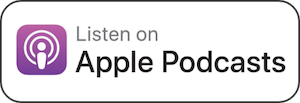


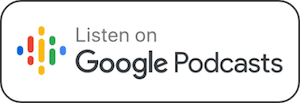

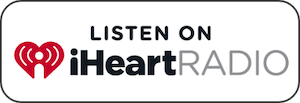
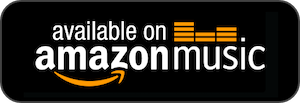
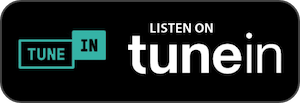
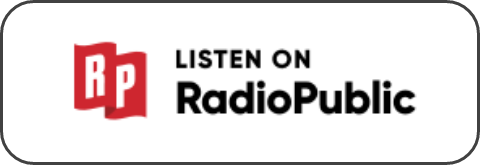
 For more than three decades, Don Scales has run professional services firms and understands firsthand how to make them succeed. In his current role of global CEO of Investis Digital, he is executing on his vision to lead a company unlike anything else in the digital communications space. He’s put together a team with deep expertise in corporate communications and investor relations and united them with innovative performance marketing experts and world-class technology solutions to help companies connect with audiences across all digital touchpoints.
For more than three decades, Don Scales has run professional services firms and understands firsthand how to make them succeed. In his current role of global CEO of Investis Digital, he is executing on his vision to lead a company unlike anything else in the digital communications space. He’s put together a team with deep expertise in corporate communications and investor relations and united them with innovative performance marketing experts and world-class technology solutions to help companies connect with audiences across all digital touchpoints.